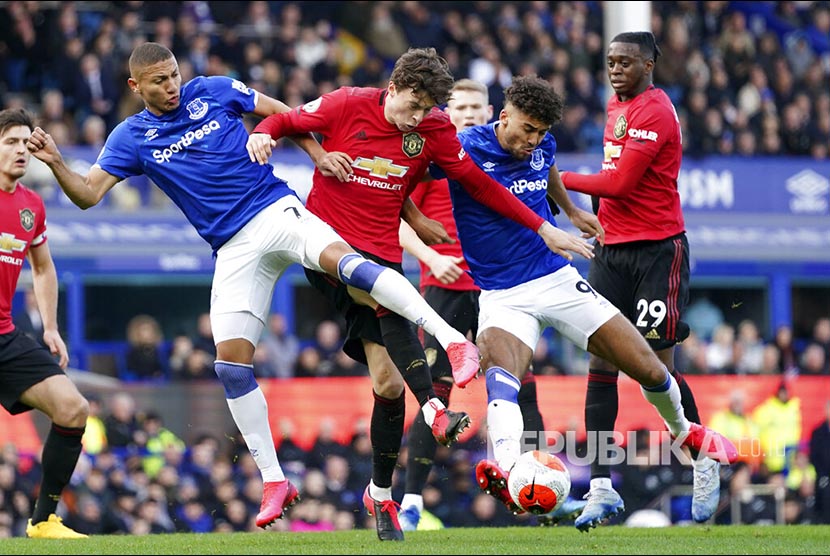“There are some good books about different football cultures,”

Cox’s strongest claim to be writing about more than formations and tactical trends lies with his second book, “handily entitled” Zonal Marking, as he put it on his Twitter page, which explores the impact not just of technology but of national and civic traditions on the evolution of footballing styles. In Cox's account, during the modern era, a single nation has dominated the European game, either through its players, coaches, club sides or national teams, for a period of almost exactly four years before passing the baton, often at a highly specific moment in time. Cox uses this framework to explain the emergence of players such as Messi, Ronaldo and Thierry Henry, and managers like José Mourinho and Pep Guardiola. A relevant innovation might be a system or a type of player, or changes in match preparation, such as Mourinho’s decision to banish fitness routines that don’t involve a ball.
“There are some good books about different football cultures,” Cox said. “But I feel they go a bit too much towards trying to explain the country through football. I’ll finish reading the book and think, ‘I don’t really get what Baggio was’.” It will be clear to readers of Cox’s chapter “The Third Attacker” exactly the sort of player Baggio was – “neither an attacking midfielder nor a conventional forward” but an “archetypal number 10” who “could do almost anything with the ball: weave past opponents, play delicate through-balls, score from impossible angles”, the type of player “Italian football adores”. As an act of cultural explanation – at once a popular exegesis of abstruse theories and a genealogy of how we got to where we are – Zonal Markinginvites comparison toThe Shock of the New, Robert Hughes’s survey of modern art and architecture, and Bertrand Russell’sA History of Western Philosophy.
But just as Cox sees football as a mix of the old-fashioned and the new-fangled, so his pursuit of conceptual precision does not prevent him experiencing football as a source of wonder and bafflement. In May 2019, I spent three nights watching football with Cox at a bar in Valencia, including the second leg of the Champions League semi-final between Liverpool and Barcelona, in which Liverpool were tasked with overcoming a 3-0 deficit. “Game on!”, Cox shouted, after Gini Wijnaldum scored Liverpool’s second goal. At the end, after Liverpool won, he said, “4-0 in a semi. Bloody hell.” The following night, when Lucas Moura’s hat-trick helped Tottenham accomplish an equally astonishing comeback against Ajax, he exclaimed: “How did he do that?”
He also embraces football as a spectacle, an occasion and an object of fetishism. When we went to watch Arsenal at Valencia’s stadium, the Mestalla, he said, “the Spanish get it right in a lot of ways – a young crowd, better gender balance, not aggressive.” As the players emerged onto the pitch, he expressed his irritation that Arsenal had been prohibited from playing in their home kit – the colour worn by all of the travelling fans – because of a UEFA rule stating that the two teams must be wearing different-coloured shorts. “I don’t like it,” he said, almost shaking his head. “It’s a shame.”
After Cox and I watched Arsenal beat Valencia, he opened his laptop, and in the time it took Robbie Savage, the former Welsh midfielder, to perfect a hyperbole-laden minute-long selfie-video, Cox tapped out 950 elegant words for the ESPN website, one of his final freelance pieces before moving to the Athletic. The resulting article contained only passing allusion to Arsenal’s use of a formation, but then analysis isn’t only about tactics. It’s just shorthand for an engagement with what happens on the pitch – the “actual” 90 minutes.
https://zenodo.org/communities/bosolldsdss/about/
https://zenodo.org/communities/hayangmodol/about/
https://zenodo.org/communities/abduldoynek/about/
https://zenodo.org/communities/etagege/about/
https://zenodo.org/communities/tytytytyd/about/
Cox believes thatMatch of the Dayand broadsheet newspapers still haven’t worked out how to cover football games, as opposed to players’ post-match reflections, press-conference putdowns, corruption scandals and industry gossip. But he says that the general standard of commentary has improved. He cited the work of Jonathan Wilson and the appointment, in 2011, of Gary Neville, the former Manchester United defender, as the lead pundit on Sky Sports, after Andy Gray was fired for making a series of sexist remarks. Writing in theGuardian, Cox welcomed Neville’s focus on “overall strategies – not just post-commentary on goals, but discussion upon the pattern of the game, using video examples of pressing, for example, or diagonal balls”. He also observed that Neville was being rapturously applauded for doing what everyone should be doing.
Alex Stewart, the Athletic’s senior content strategist, told me that Cox’s work formed part of a “general movement towards better explaining how football actually works on the pitch rather than highlighting an individual player and saying, ‘Well, they’re very fast.’” When Cox and Neville were starting out, Stewart was working for the Metropolitan Police, having dropped out of a DPhil on medieval religious poetry at Oxford. But he might be described as the central figure of the movement’s second wave. Over the past few years, since resigning as "a copper", he has written hundreds of scripts for videos that appeared on the YouTube channel Tifo Football, which recently merged with the Athletic. Stewart maintains a fairly low profile – the videos are illustrated, and even Stewart’s words are frequently delivered by his colleague, Joe Devine –but his reach has been vast. Tifo’s 2018 video “What Happened to Two-Man Striker Teams?” has received more than 1.5m views.
Stewart is happier than Cox to speculate on the intellectual tools required for analysing a game of football. Looking back on his varied professional journey, he said that “the ability to spot patterns and create links between things was a consistent feature of the things I have done.” He watches football with the sound muted and treats it not as something with any emotional content, or even as a human narrative, but as an exercise in observing “how people are moving in relation to space, or to the ball”.
The challenge is to bring this unusual form of insight to what Stewart calls “the broad interested audience”. He talked about a “middle ground” between the reductive and simplistic on the one hand, and the opaque and portentous on the other. Of his own work, Cox said, “You do have to be able to formulate an argument in a structured way. You do have to find themes. It’s not just a scouting report.” Tom Worville, who works with Cox at the Athletic, distinguished popular tactics writing from the German website spielverlagerung.com, which he said offers “deep tactical theory, near-theses about pressing structures”. Tifo’s five-minute videos “break down the game in easy-to-consume, obvious terms” and make you “feel like you’ve been watching a team for the whole season”, while Cox “dives down into the specific plays and explains things with screen grabs, which is just really effective. He presents it in a way that my Dad could read an article and come away understanding and maybe start viewing the game differently.”
A potential obstacle in this quest for lucidity is the use of football “analytics” – the number of passes completed by a team, for instance, or kilometres run by a player. But here, too, a popularising impulse has been increasingly visible. In May 2009, the month that Cox left university, the statistics company Opta started a Twitter feed (@optajoe) that supplied football data directly to fans for the first time. Cox formed part of an effort to promote the use of data in football analysis. He is a particular fan of the metric known as Expected Goals (xG), a tool that screens out the identity of the shooter to assess the statistical likelihood a goal would have occurred in a given scenario. xG has been the subject of much reflexive derision of the Souness variety. After the former Arsenal manager, Arsène Wenger, invoked his team’s xG quota in an interview, Jeff Stelling, the Sky Sports presenter, dismissed it as “the most useless stat in the history of football. What does it tell ya?” Cox says that what it tells you is how a team actually played. A team’s xG average, he explained to me, is “a better predictor” of future performance than any single result. Cox noted that few players manage to “outscore” their personal xG average and that using xG to generate odds had worked “very well for the betting companies”.
Openness to a more empirical approach is “partly a generational thing”, Duncan Alexander, Opta’s chief data editor, told me. But Jonathan Wilson argued that there were earlier glimmers of sophistication in English football culture. He said that the 1990 World Cup – when Pavarotti sang and Gazza cried – revealed the power of a single tactical change: “England switching to a back five early in the tournament and it being manifestly successful suddenly opened people’s eyes.” He also noted that though Andy Gray has become “a figure of fun”, his early work on Sky “took punditry in a new direction”.

Cayman Islands Condos for Sale: Are They for You?
- Crighton Properties offers a diverse selection of property listings in the Caribbean real estate market and is the exclusive agent for the following Cayman.

Effective Ways To Pass the Nokia BL0-100 Exams
- The whole point of certification is that it independently and impartially verifies that you are complying to a standard. Irrespective of regardless

Queens granddaughter expecting baby
- Zara Tindall, a granddaughter of Queen Elizabeth II, is pregnant with her first child, Buckingham Pa

The move has been slammed by several people on social media American writer Candace Owens criticised Biden for referring to a cheat
- The move has been slammed by several people on social media American writer Candace Owens criticised Biden for referring to a cheat